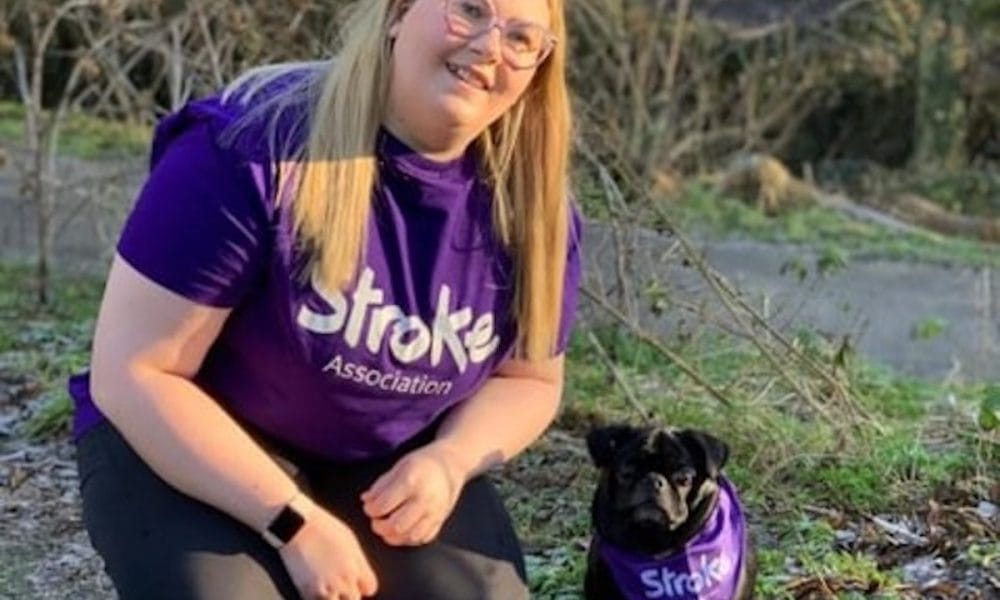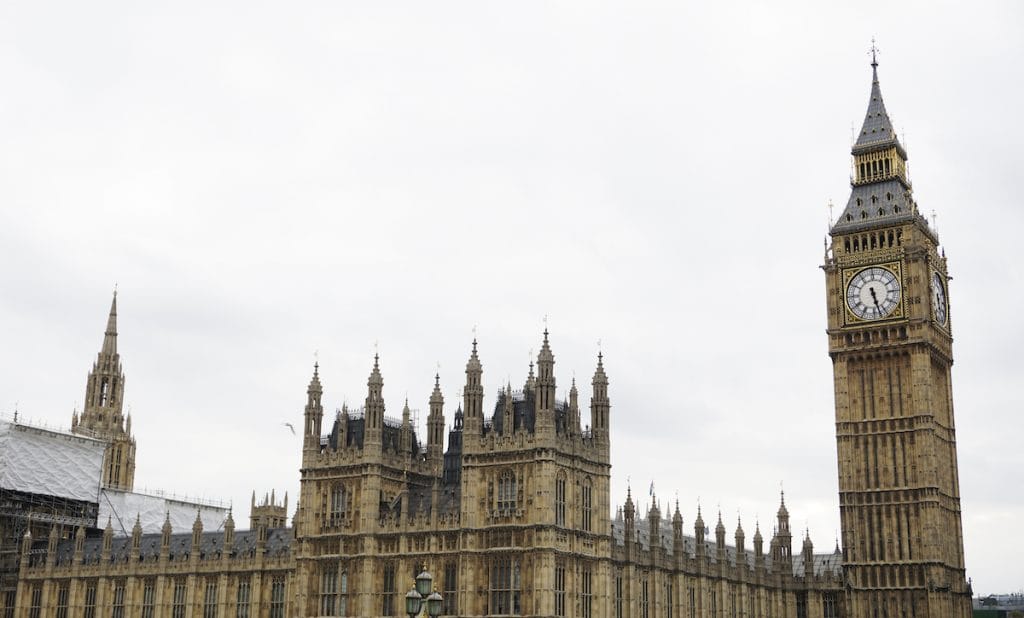
As a nurse working with stroke patients, Chloe Hammond supports people in their recovery every day – but the effects of stroke have also touched her own family. Here, she shares her reasons for fundraising for survivors by walking 1.2 million steps.
A stroke nurse has committed to walking 1.2 million steps to raise money for the Stroke Association, having dealt with the effects of stroke in both her personal and professional life.
Chloe Hammond is completing the challenge as a symbolic reminder of the 1.2 million stroke survivors in the UK, and aims to complete it by walking 10,000 steps a day for 120 days.
Chloe, a nurse at Sunderland Royal Hospital, works in neurorehabilitation but is currently deployed to the hospital’s acute stroke ward, where she sees first-hand the impact that stroke can have in the earliest days of recovery.
And with two members of her own family having had a stroke, she is well aware, both personally and professionally, of the impact it can have on individuals and their loved ones.
“Being on the acute ward and seeing the acute side has been quite challenging, as usually I’m working with patients while they’re in recovery and having their rehabilitation,” says Chloe.
“I absolutely love seeing the progress they are making in neuro rehab, but I’m really pleased to be in the acute setting giving these patients support in the very early stages after their stroke.
“I’ve had two family members who have had haemorrhagic strokes, so I know all too well the effect this has on a person and their family, I’ve been there myself and experience it first-hand.
“So by raising money for the Stroke Association through the Stride for Stroke challenge, we can hopefully make a big difference to them after they are discharged from hospital.”
Currently, with restrictions on visiting, Chloe and her colleagues are giving medical, practical and emotional support to patients in the absence of visits from their families.
“The pandemic, and particularly the lack of visits, has definitely taken a massive mental health toll on a lot of patients,” says Chloe.

Rodney the Pug
“Often, where they could have further rehabilitation in hospital, they say they don’t want it as they don’t want to be here, they want to be with their family at home. So that’s hard, but we support them every step of the way while they’re with us.
“I think for families too, as they can’t come in and see their loved ones, they don’t fully know the impact the stroke has had on them as they haven’t seen the effects for themselves. So they don’t really know what to expect when their loved one comes home.
“But we’re always on hand to give all the support we can, and we often help patients use the technology like FaceTime so they can have those calls with their loved ones, which are now more important than ever.”
Through the Stride for Stroke challenge, Chloe is aiming to raise vital funds, as well as awareness of the importance of exercise which can prove crucial in reducing risk of stroke.
“I’m trying to walk to and from work and do a little bit more exercise than I normally would on my days off to get to the 1.2 million target,” says Chloe.
“I’m enjoying going on some longer walks with my pug Rodney too, he gets me out even despite the bad weather and snow we’ve had recently.
“But exercise is so important, and particularly working on the acute stroke ward at the minute, it reminds you of how important it really is to keep active, and do all you can to reduce the risk factors.”
* To support Chloe in the Stride for Stroke challenge, visit www.justgiving.com/chloe-hammond6










